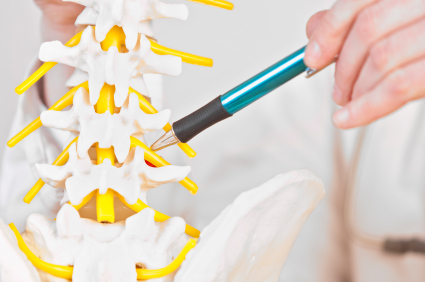A new fact sheet that summarizes the latest medical advice about dealing with pain after SCI has just been released. It’s a publication of the Model Systems Knowledge Translation Center (MSKTC), which has collected data about pain from the 14 best SCI research hospitals across the nation, and put it into plain language that people can understand and use in their everyday lives.
A majority of people with SCI experience varying types of pain, both in areas with normal sensation as well as in areas that have little or no feeling. The pain is very real. It can come and go, and negatively impact the lives of patients’ even years after they’ve been rehabilitated. The fact sheet outlines these steps for dealing with pain.
Pain has many different causes. There is no single way to treat it. You and your doctor may need to try a combination of drugs, therapy and other treatments, including psychological treatment, and this may take some time.
In the meantime…
Get treatment for medical problems. Overall health can have a big impact on pain. Urinary tract infections, bowel problems, skin problems, sleep problems and spasticity can make pain worse or harder to treat. Keeping yourself as healthy as possible can help reduce pain.
- Try to get as much exercise as possible. Getting regular physical activity can reduce pain as well as improve mood and overall health. It can even distract you from pain. Your health provider can help you choose physical activities that are safe and appropriate for you.
- Get treatment for depression. Depression can make pain worse. It is best treated through counseling and medication. Getting treatment for depression can help you cope with chronic pain and improve your quality of life.
- Reduce stress. Stress can make pain worse and harder to cope with. You can find ways to manage stress through counseling and by learning techniques that help you reduce stress and tension, such as relaxation training, biofeedback and hypnosis. Exercise helps reduce stress.
- Distract yourself. Distraction is one of the best methods for coping with chronic pain. Participating in enjoyable and meaningful activities can help reduce pain and help you feel more in control of your life, especially when pain is at its worst. When you are bored and inactive, you tend to focus more on your pain,
- Keep a record. Everyone’s pain is different. Keep a record of what makes you feel better and what makes your pain worse. Knowing what things affect your pain helps you and your doctor find effective ways to reduce it.
- Get a wheelchair seating evaluation. Poor posture and improper seating often cause serious pain problems. Get your seating evaluated by a physical therapist that specializes in wheelchair seating. If you use a manual wheelchair, try to get a high-strength, fully customizable chair made of the lightest material possible (aluminum or titanium). Learn the proper wheelchair propulsion (pushing) technique from a physical therapist.
- Avoid using alcohol to ease pain. Using alcohol as a pain medication can lead to alcohol abuse and other serious problems. Some medications should not be mixed with alcohol. Ask your doctor about drinking alcohol, and always read the labels on your prescriptions.
Here’s a link to the “Pain After Spinal Cord Injury” fact sheet.
Here’s a link to all the MSKTC “Spinal Cord Injury Fact Sheets”. They offer solidly researched, expert information you can trust.

Upon sustaining a C-6 SCI 28+ years ago, I was under the impression that any additional sensation and motor abilities would taper off within three years after my injury. Thankfully, I have continued to experience changes over the years. Mostly pain sensation, or discomfort. But those sensations have helped keep me from developing dreaded pressure ulcers! However, as a former competitive swimmer and wheelchair track athlete, along with using a manual wheelchair wreaked havoc on my shoulders. Transferring, dressing and other personal care requirements (like putting on makeup, nail polish, styling my hair…lol!), as well as work activities using the computer and writing have all significantly contributed to my development of severe tendinitis due to repetitive motion. I absolutely agree and subscribe to all of the above, especially a careful balance of movement and excercise, which definitely helps, as well as massage…and good old BenGay! Nope, sustaining a life altering SCI doesn’t give you a bye from developing pain as time goes on even in places where you are not SUPPOSED to have sensation. As I indicated earlier, pain sensation can be beneficial albeit annoying but listening to your body is critical. I in no way mean to come across as cavalier about dealing with pain – it can be excruciating and result in days off from work, as well as days away from regular life activities. It can be truly devastating. So, for family members and caregivers, living with a person with a SCI with chronic pain can be tough on you too. We are all in it (life) together, so anything we can do to help and support each other is essential.